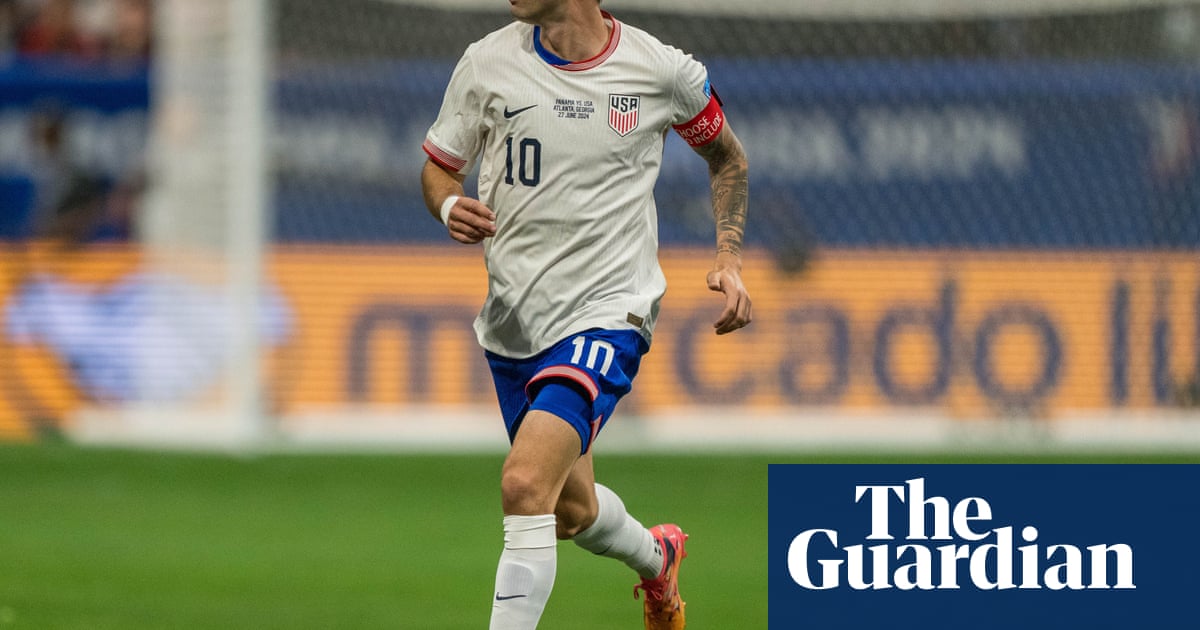The United States men’s national team need a number of things. Some wins, after losing three straight games from March’s Concacaf Nations League through Saturday’s2-1 loss to Turkey. A bit of momentum or indeed excitement for next year’s World Cup on home soil. A clear identity, or at least a rediscovery of the kind of grit that once made this team competitive. A goalscorer.
The one thing the Americans do not need is another episode of parent-driven drama. But that’s what they have.
Almost two and a half years on, US Soccer is still feeling the ripple effects from the Reyna Brouhaha. After the 2022 World Cup, Gio Reyna’s parents, both former national teamers, set off a scandal when theytold the federationabout a decades-old domestic violence incident between then-head coach Gregg Berhalter and his wife when they were in college, triggering an investigation. The Reynas were reportedly upset about Gio’s limited playing time in Qatar, and Berhalter’ssubsequent airingof the player’s lack of effort in training.
Berhalter wasultimately cleared of further wrongdoingand rehired, but the national team played for a pair of interim coaches for half a year and have never recovered the velocity they built up during Berhalter’s first World Cup cycle, leading to a poor Copa América showing and the coach’s ouster last summer. Reyna’s career, meanwhile,has stalled, and could have benefited from the spotlight of the World Cup.
Mark Pulisic, a former professional indoor player and coach and the father of the USMNT’s best player,Christian Pulisic, added another chapter to the parental behavior files on Sunday.
It started when Landon Donovan lauded the 40-year-old Cristiano Ronaldo for his effort with Portugal in Sunday’s Uefa Nations League final: “I can’t help but think about our guys on vacation, not wanting to play in the Gold Cup. It’s pissing me off,” said Donovan, who was covering the game for Fox Sports.
It was an apparent jibe at the younger Pulisic, who asked to be left out of the USMNT’s Gold Cup campaign after a long club season with Milan and ahead of a World Cup year. The general complaint was not new; Donovansaid similar thingson his podcast in May. But on Fox, they were put squarely into the spotlight.
In response, the elder Pulisic took to his private account on Instagram,posting an imageof a ChatGPT response about Donovan taking a sabbatical from soccer in 2013. “This guy is talking about commitment,” Mark Pulisic wrote in the caption. “Look in the mirror + grow a pair and call names out or are you afraid next time you want an interview you will get rejected again.”
Christian Pulisic liked the post.
A few different things are true here, and they all speak to the current condition of the American men’s game. For a start, the Pulisics are being thin-skinned. Fellow national team star Weston McKennie showed understanding for Pulisic’s summer break. “Any chance that we get, we want to play,” the Juventus midfielder, who will also miss the Gold Cup while in action at the Club World Cup,told USA Today. “But obviously, if you don’t feel like your body is in the right condition, and you don’t feel like your body is in the best form or shape or whatever, to be able to do that at 100%, and you feel like you’re risking injury, then it’s better to let someone else go in that is completely 100%.”
Tyler Adams, whoisin camp with the national team, has saidhe is fine with Pulisic’s absence. So is US Soccer, at least publicly. “After thoughtful discussions and careful consideration, we made the collective decision that this is the right moment for him to get the rest he needs,” the federation’s sporting director, Matt Crocker, said of Pulisic upon the roster announcement.
So why should the Pulisics care what a TV pundit – albeit one of the USMNT’s best ever player – says about Christian’s choices?
Sign up toSoccer with Jonathan Wilson
Jonathan Wilson brings expert analysis on the biggest stories from European soccer
after newsletter promotion
The whole thing also reflectsthe incestuousness of elite soccer in the United States, where everybody knows everyone and has for decades. Squabbles are never quite as superficial as they seem here, often harkening back to ancient grievances. The public nature of social media (even private accounts) is an accelerant. Beyond the aforementioned Reynas, Mark Pulisic is not the only USMNT dad who isveryonline.
It’s also valid to point out that Donovan and the other critical members of the punditocracy may not entirely understand what it’s like to be in Christian Pulisic’s shoes. Donovan took his own sabbatical and has acknowledged how taxing it is to be the face of the national team. “I understand very clearly what it’s like to need a break,” Donovan said on his podcast in May.
Yet Donovan never played a full European season as a first-team regular. He was never a leading player for one of the continent’s most regal teams in a grueling league like Italy’s Serie A, relied upon several times a week to win games while his team is expected to compete in four competitions, including the Champions League. Pulisic not only did all of that, but he was Milan’s leading scorer inhis best season yet.
(As an aside, this is also where the comparison to Ronaldo falls apart, since the latter played his club soccer in the much gentler Saudi Arabian league this season.)
However you tally up insults and umbrage, there is no escaping the conclusion that the timing of it all is particularly unfortunate. The USMNT, after all, are about to embark on a summer tournament in whichthey hope to move onthe from all the recent dysfunction at last. Now they have even more of it, and the player in question isn’t even in camp.
Leander Schaerlaeckens is at work on a book about the United States men’s national soccer team, out in 2026. He teaches at Marist University.
